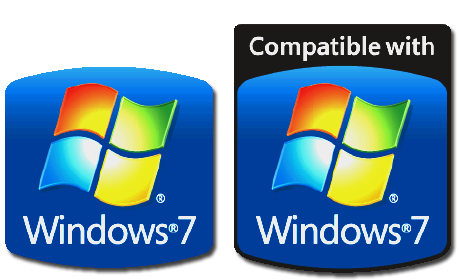Intel Talks About Windows 7 Optimizations
Intel helped Microsoft make Windows 7 faster.
Get Tom's Hardware's best news and in-depth reviews, straight to your inbox.
You are now subscribed
Your newsletter sign-up was successful
One of the biggest challenges for Microsoft when designing any piece of software is maintaining compatibility for the nearly infinite different configurations of hardware. This is especially true for an operating system, which is why Microsoft worked with hardware partners as closely as possible when developing Windows 7.
Intel, being the largest chip maker in the world, played an important part in optimizing Windows 7 so that it'll run well on Intel CPUs.
Joakim Lialias, Intel's Alliance Manager for Microsoft explained on the new Partner blog some of the optimizations: "Working with Intel, Microsoft implemented a new feature called SMT parking, which provided additional support for the Windows 7 scheduler for Intel Hyper-threading Technology, enabling better performance on hyper-threaded, multi-core Intel processors. This will help users get the maximum benefit from multi-tasking."
"Also, Intel and Microsoft jointly analyzed the boot/shutdown/sleep/resume times on Intel platforms during the development of Windows 7 to identify opportunities to optimize Intel drivers and BIOS as well as Windows 7," Lialias continued. "Our mutual goal was to provide the most responsive compute experience possible. Another key part of the performance and responsiveness was our collaboration to optimize Intel Solid State Drive technology for Windows 7."
Related links:
Get Tom's Hardware's best news and in-depth reviews, straight to your inbox.
-
jerreece I wonder if this article will illicit a negative response from folks who are AMD only. :) I don't take sides, but I just wonder. I also wonder if AMD was able to work as closely with Microsoft or not.Reply -
I'm amazed for the Solid State drives!Reply
However, Intel's SS drives are pretty fast and efficient themselves!
It's other MLC drives that need compatibility (by having write cache enabled and delayed writes when a reading operation is being done).
I only have one more request on windows 7,that the disk defrag program might be optimized, not to clutter files from the same directory over the disk, but to try to fit them as close to eachother as possible, allowing faster program bootups. -
Niva AMD really doesn't matter folks... oh wait, I don't own any Intel systems. So much for upgrading to Windows 7 for me I guess :)Reply -
deltatux I'm sure Microsoft works with AMD closely as well as AMD does own a sizeable market as well.Reply
This article talks about Intel, doesn't mean AMD is excluded. -
chaohsiangchen jerreeceI wonder if this article will illicit a negative response from folks who are AMD only. I don't take sides, but I just wonder. I also wonder if AMD was able to work as closely with Microsoft or not.Reply
They do. Not long a ago, a report says that AMD is working closely with M$ on developing codes that is optimized for virtualization. However, Intel always have more resources to provide better documentation and tech support. -
gekko668 I'm sure AMD will develops an optimization software that is only for AMD processor like the AMD Fusion.Reply -
apmyhr If your an AMD fan, I wouldn't get worried over this article. For CPU performance, it mostly talks about improved use of HyperThreading, which is only on the new Nehalem line. Those CPU's are in a price bracket which AMD doesn't even really compete in. So if you stick to comparing AMD processors to their Intel equivalents, increased hyperthreading support doesn't matter because Core 2 doesn't have hyperthreading. So don't get worried that you should have bought the $150 Intel CPU instead of the $150 AMD CPU.Reply

